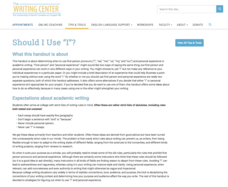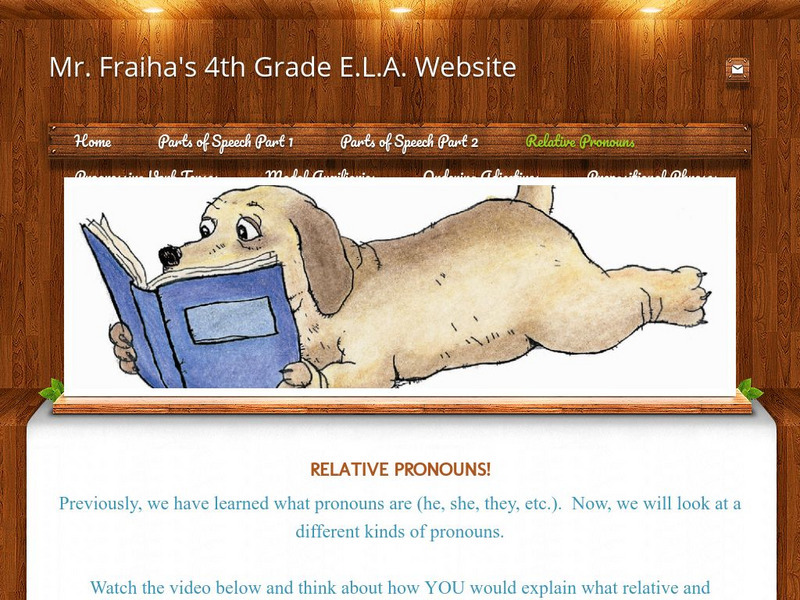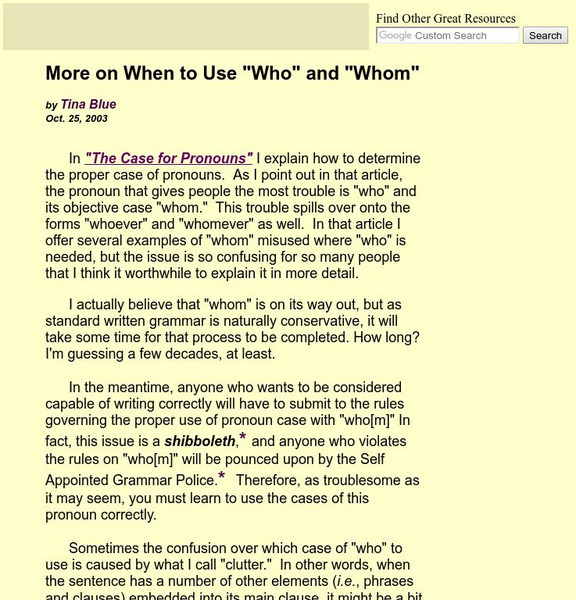University of North Carolina
Gender-Inclusive Language
In the past, if writers weren't sure of a person's gender, they simply used masculine pronouns. Today, however, as a handout on gender-inclusive language explains, writers must choose pronouns carefully. To promote the use of gender...
University of North Carolina
Relative Clauses
Knock, knock. Who's there? To. To who? No! To whom. Knowing when to use who versus whom is just one of the many topics covered on a handout about relative pronouns. Writers discover how to incorporate words such as whose, that, which,...
University of North Carolina
Should I Use “I”?
Despite the formal nature of academic writing, personal pronouns frequently appear in high school and college papers. While your first instinct may be to cross them out, sometimes it's okay to use them, an idea covered in a handout that...
University of North Carolina
Articles
English might be a tough language to learn, but at least all words have a specific purpose! A handout from The Writing Center at UNC outlines the purposes of articles in the English language. Discover which types of nouns need articles...
Other
Mr. Fraiha's 4th Grade e.l.a. Website: Relative Pronouns
Created by a fourth grade teacher, this site explains relative pronouns, then provides several opportunities for students to text their new knowledge.
Grammar Tips
Grammar Tips: More on When to Use "Who" and Whom"
A great tutorial on the use of the pronouns, "who" and "whom," which are often confused. Many examples are given as are fool-proof ways to check whether the correct one is being used.
Other popular searches
- Grammar Worksheets Pronouns
- Possessive Pronouns
- Subject and Object Pronouns
- Indefinite Pronouns
- Object Pronouns
- Pronouns and Antecedents
- Direct Object Pronoun
- Personal Pronouns
- Subject Pronouns
- Demonstrative Pronouns
- Reflexive Pronouns
- Relative Pronouns





